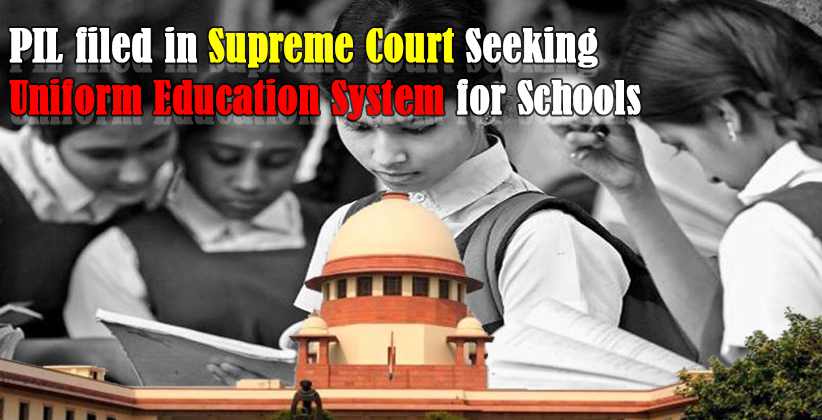By the 86th Amendment in 2002, Article 21A was inserted into the constitution. Also known as the right to education, it is one of the fundamental rights the Indian constitution guarantees to its citizens. The Right of Children to Free and Compulsory Education Act was passed in 2009 by the parliament and enacted in April 2010. This act provided legitimacy and a solid legal foundation to the aforementioned right. The government now has to offer free and compulsory education to children between the age of 6-14 years.
Historically, there have been a lot of differences in the curriculum for students in different areas of the country, which depended on the board their respective schools were affiliated to. The making of laws concerning Education comes under the concurrent list in the constitution, meaning that both union and state governments have the power to issue laws on the topic. This provision has resulted in a variety of boards coming to existence. From the unions Central Board of Secondary Education (CBSE), Council for Indian School Certificate Examination (ICSE) to state boards (SSCs), curriculums have been designed by each board with different factors in mind.
This issue has created a lot of discrepancies when it came to College education and entrance examinations. Most entrance examinations are based on CBSE due to which a considerable number of students are not on par with students from schools affiliated to CBSE. To address these issues, a Public Interest Litigation has been filed in the Supreme Court by BJP leader Ashwini Kumar Upadhyay through Advocate Ashwani Kumar Dubey.
The plea seeks to dismiss the pre-existing differences among boards and follow a principle of One Nation One Board int the spirit of Article 21A read with Articles 14, 15, 38(2), 39(f), and 51A of the constitution. It seeks to lay the foundation for the establishment of a single commission that will decide the syllabus for students throughout the nation, thereby merging CBSE and ICSE. It also seeks to get the court to order the introduction of a compulsory standard textbook for fundamental rights, Duties, and Directive Principles of State Policy for the age group of children guaranteed free and compulsory education.
This plea comes at a time when the Human Resource Development Ministry has introduced 12 channels for students of CBSE to continue their education as reasonably as possible. The plea claimed that while this step would only help 20% of the school-going children, it would offend the Right to Education of the remaining 80% who are not studying in schools affiliated to the board. This difference has become a result of the socio-economic and cultural divide existing within Indian society.
Stating further, the plea claims that with the establishment of a single organization with a single syllabus for all students, the problems of inequality of opportunity, linguism, economic divide, and regionalism will be solved while promoting fraternity and unity through national integration of state boards. Moreover, it asserted that the Right to Education is the most important fundamental right of all because a persons implementation and awareness of other rights flow through ones education.
The union governments stance was clarified in 2016 when Education Minister Prakash Javadekar was asked whether the government proposed to introduce a uniform syllabus for all boards. He explained that the current regime would not introduce a uniform syllabus because it wont take into account the local contexts, culture, and language.
The Supreme court, if it takes cognizance of the issue, will provide a radical change in the education system of India.








